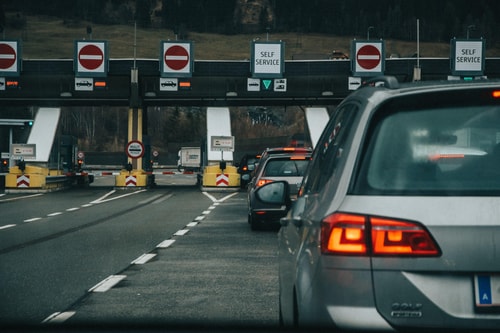As the UK steadily welcomes 20,000 refugees through the Afghan citizens’ resettlement scheme, it is hard to ignore the part that our country plays in providing refuge for the persecuted, vulnerable and exploited.
There has been no better time for policymakers to examine our asylum system and to implement much-needed changes that uphold the dignity of those in need of refuge. Perhaps then it should be celebrated that there is a bill currently going through parliament which, in the words of our home secretary, will “fix this broken system”? But, the Nationality and Borders Bill appears to do quite the opposite – with the potential for asylum seekers to be discriminated against and put in further danger.
Why should Christians care about the asylum system?
At the core of our beliefs as Christians is that well-known verse from Genesis 1 that declares that all of mankind is made in the image of God. Surely then, if all humans are made in God’s image, we should be a people that strive for an asylum system that reflects this.
Throughout the Old Testament we are reminded that God’s people were once foreigners in the land of Egypt, and that this experience should lead His people to care for the strangers dwelling in their land (Deuteronomy 10:19). In the New Testament we see how Jesus was Himself a stranger in need of welcome (Matthew 25:35). We should not forget this when it comes to engaging in asylum reform.
We do, however, recognise that there is a balance to be struck. It is unsustainable for the UK to become home to every one of the world’s refugees, but we do have a duty to ensure that those who enter the UK (and surrounding territory) are treated with dignity and compassion.
Our response to the Public Bill Committee’s call for evidence
The Nationality and Borders Bill is currently being considered by a parliamentary committee before further votes in the House of Commons. The Evangelical Alliance has submitted evidence to the committee and in our response we have highlighted six outcomes of the bill that we have particular concern over:
1. Creation of an unjust discriminatory system
Many of those escaping persecution have no other option but to come to the UK through unauthorised means. In particular, for many Christians experiencing religious persecution, it is impossible for them to present themselves as in need of refuge whilst still in their home country. The Nationality and Borders Bill will mean that those who, out of desperation, make unauthorised journeys (e.g., on a small boat or in the back of a lorry) will be disqualified from certain forms of support from the UK Government and local authorities. This proposal is in conflict with international law and has been criticised by the UN High Commissioner for Refugees.
2. Subpar and inappropriate accommodation
The use of asylum accommodation centres will be expanded, allowing for people to live in them for longer than six months. Such centres have widely been reported to be of poor quality and the cause of many other social issues. The effects of living in accommodation centres are long term, often causing trauma and sometimes leaving people susceptible to homelessness. Many of the social issues experienced by asylum seekers could be tackled through better housing and integration into communities.
3. Unfair dismissal of people with a ‘connection to a safe country’
People who have travelled through another country to get to the UK will be sent back to that country or another safe country. This does not take into account the many legitimate reasons that people have come to the UK; for example, some may already have family here, providing them with a greater sense of familiarity and security.
4. Unreasonable requirements in the provision of evidence
People who are seeking asylum have likely been through significant trauma and now have to navigate the difficult process of claiming asylum. The bill will create stricter timeframes for people to present evidence, penalising late evidence. More resources should be given to support people through this process, rather than make the process even more difficult than necessary.
5. Endangerment of lives at sea
An approach of turning boats around when they enter UK seas will be established. This is highly dangerous. Evidence from other countries that carry out this practice shows that too often this approach can lead to people losing their life at sea.
6. Increased trauma for victims of modern slavery
Stricter requirements will be placed on victims of modern slavery to prove that they are indeed victims. Considering that there is very little evidence showing that people are exploiting the system, this change is unlikely to have the desired effect. The greatest impact that this will cause is the furthering of trauma faced by legitimate victims.
What action can you take?
The Nationality and Borders Bill is likely to re-enter parliament in November for MPs to vote on amendments. During this time, we will provide further information about how you can engage with your MP on particular amendments. Please keep an eye on our website, emails (sign up below) and social media (twitter, Facebook, Instagram).



